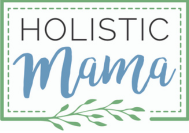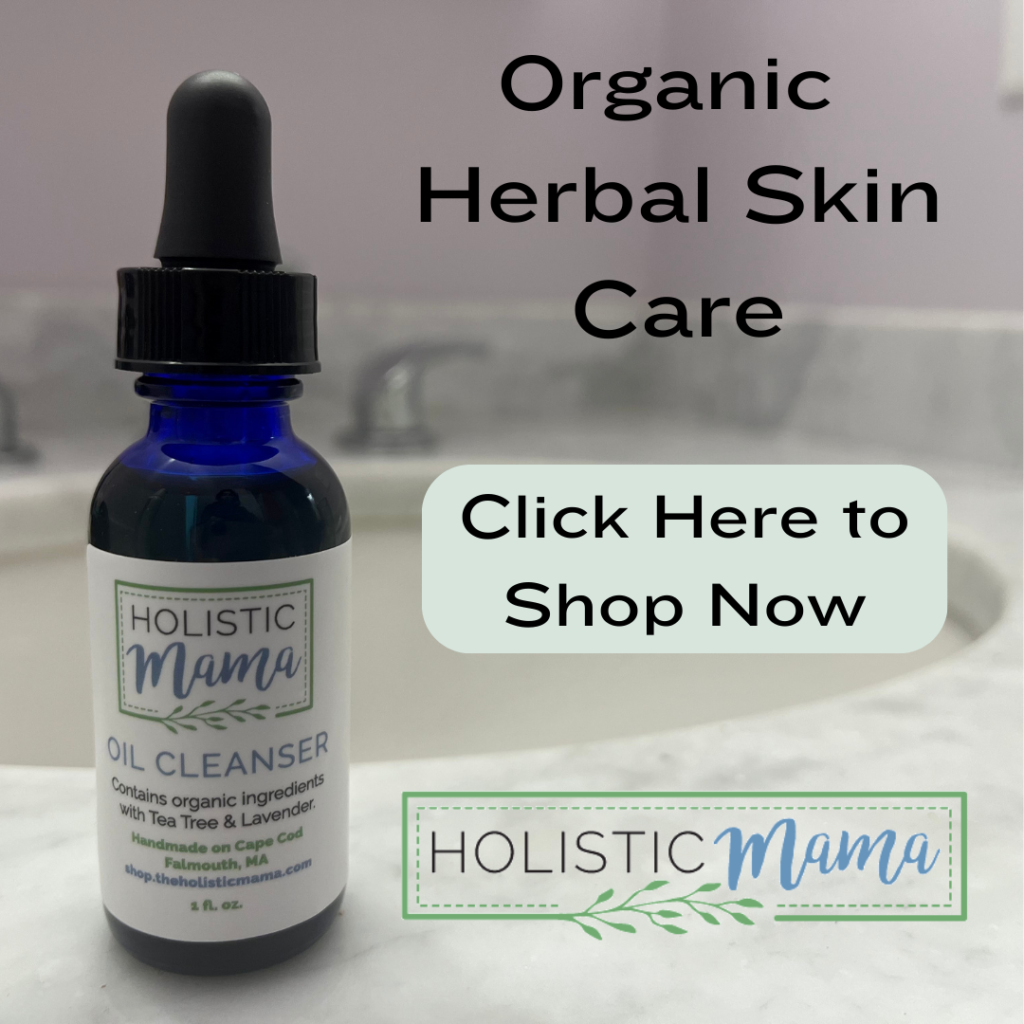-
Effective All Natural Retinol Alternative for Beautiful Skin
Category: Natural Skin Care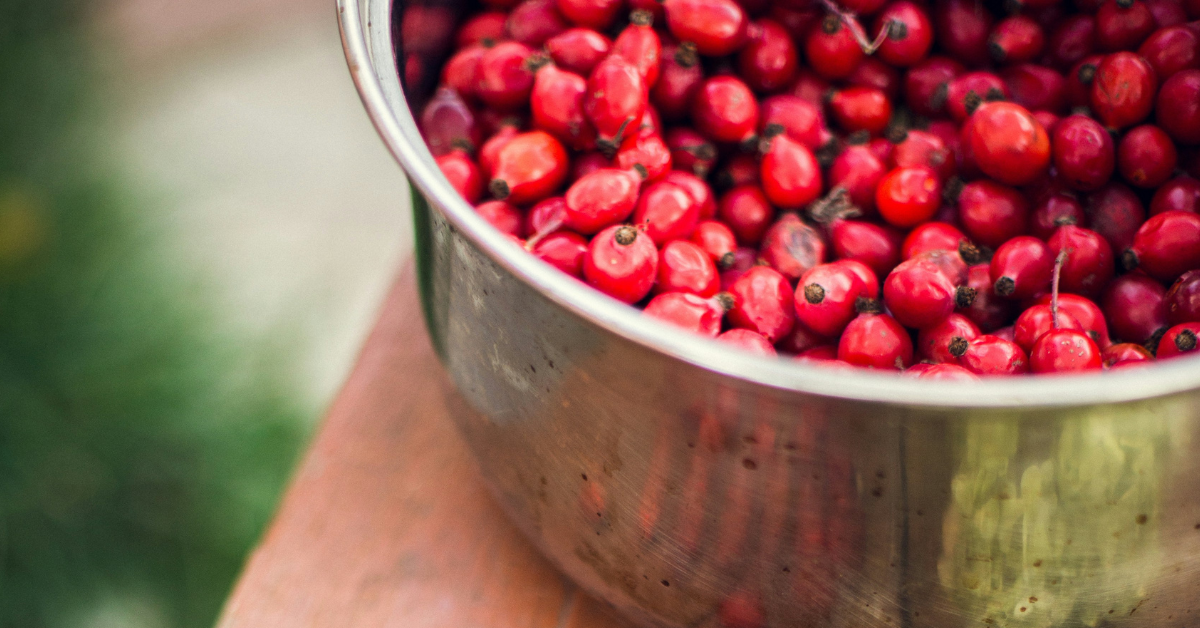
There is a natural retinol alternative that is safe to use with great results. Most women have used products that contain retinols to achieve great looking skin because it works. But at what cost?
What is Retinol?
Retinol is a synthetic derivative of Vitamin A. The active agent in retinol is retinoic acid which promotes cell turnover. The drawback to using retinols like Retin-A (tretinoin) is that it makes the skin very sensitive. In addition, there are health risks.
Health Risks of Retinol
I often refer to EWG for their safety ratings and retinol is rated at a 9 out of 10, not good. Tretinoin is not recommended for pregnant women. There have been reports of babies born with birth defects after people used tretinoin on their skin during pregnancy.
In addition, there are studies now that are indicating that it can cause skin damage and even promote skin cancer. Retinoids are linked to an increased risk of skin cancer when used on sun-exposed skin.
Tretinoin is very powerful. If you use it on sensitive skin or too often, it can begin to harm the texture of your skin. It can strip the layers of the skin, exposing new layer or the skin. Those delicate layers are now subject to the dangers of the surrounding environment. The worry is it may cause premature aging or worse.
Additional Toxin Exposure
Retinol products often also include other harmful ingredients that are used as stabilizers. These have been mentioned here on this blog before like parabens and other preservatives. Parabens can act like estrogen in the body and disrupt the normal function of hormone systems.
Natural Retinol Alternative
While retinol is a synthetic derivative of Vitamin A, there are natural sources of Vitamin A. This natural form comes from vegetables and plants such as sweet potatoes, carrots, or in seed oils such as rose hip. The constituents contained within the whole plant have a much more balanced range of action. This is one of the reasons why whole foods and herbal remedies are better choices because they have the full range of nature's benefits.
Rose hip seed oil is an amazing natural oil, which has only recently become recognized by the general public. The popularity is for a good reason. Some believe it to be the best oil available for anti-aging and skin rejuvenation. Numerous scientific studies have also taken place, which show evidence supporting the use of rose hip seed oil.
Studies on Rose Hip Seed Oil
In 1983 the University of Santiago conducted research on 180 individuals using rose hip seed oil. The tests studied people with extensive facial scarring, acne scarring, deep wrinkles, UV damage, radiation damage, burn scars, surgical scars, premature aging, dermatitis, and other skin related problems. In these tests, rose hip seed oil regenerated the skin. It reduced scars and wrinkles and prevented the advancement of wrinkles and aging. It even showed that it helps skin to regain its natural color and tone.
Another well-known study in 1988 was conducted on twenty women. They were between the ages of 25-35 with extensive premature aging to their skin. Their skin was wrinkled, and had sun spots from overexposure to the sun. They measured the results after four months of applying rose hip seed oil daily. Wrinkles and sun spots had almost completely disappeared, and the skin had a fresher and healthier look. After reading about these studies I was really excited to try rosehip seed oil as a natural retinol alternative.
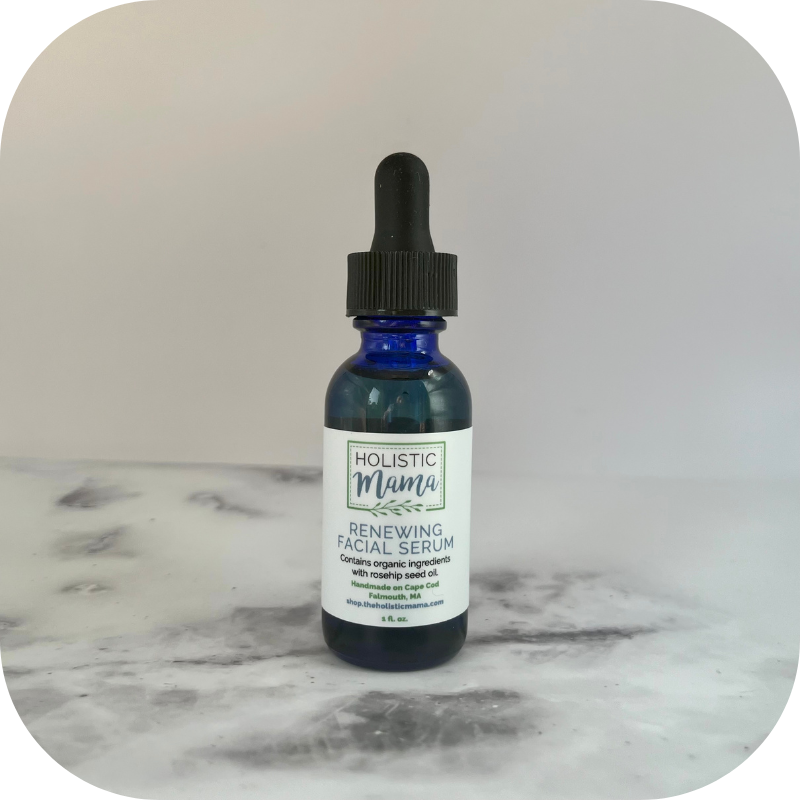
This is the facial serum I creating using rose hip seed oil along with other skin nourishing ingredients.
Does Rosehip Seed Oil Work?
In fact, I have been using rose hip seed oil in my own serums as a natural retinol alternative for 10+ years. In fact, my skin is better then ever. Rose hip seed oil has worked better then any retinol products I have ever used. My skin tone is even, all of the red marks and scarring has disappeared.
Although you can use it all on it’s own, you may want to try mixing it with other oils. This will give you even more skin-nourishing benefits. If you combine it with other moisturizing oils you can create an all in one facial oil to use day or night. If you are looking for a natural alternative to your anti-aging products, rose hip seed oil is it.
Alternative to Retinol for Acne
Can rosehip seed oil help people with acne? There is good reason to believe it can. There is interesting information about oils higher in linoleic acid being helpful to acne prone skin. Many people with acne have low levels of linoleic acid in their skin surface lipids. This can cause the skin to over produce other oils disrupting the skin's balance. Rosehip seed oil is approximately 13-14% oleic and 44-45% linoleic acid. This proportion of fats makes it a good choice for people with acne prone skin.

Thank you for reading this post, don't forget to subscribe to stay in the loop. If you are looking for some of the healthy tools and resources mentioned in my articles, take a look at my healthy shopping guide.
Some of our links are affiliate links, which means if you click and buy, I earn a small commission. The price is the same for you, though. Thank you!
You might also like these posts…
-
How to Avoid Catching Your Child's Cold
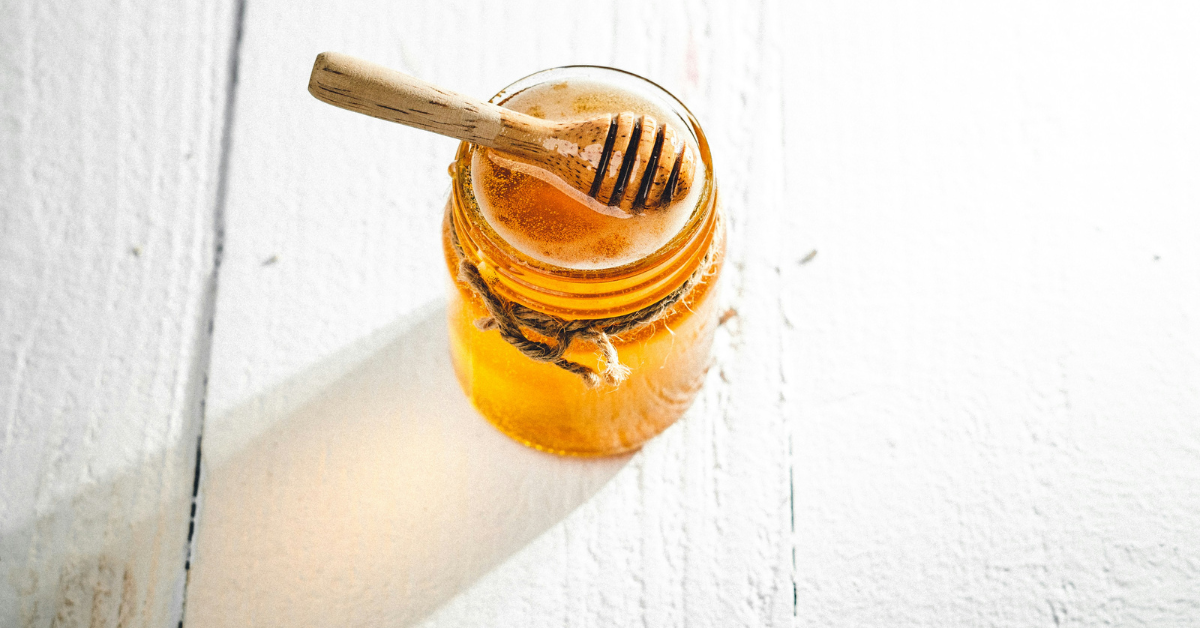
Just like every other parent, I know you want to avoid catching your child's cold. There is nothing worse then having to take care of sick children when you feel just as bad (or worse!). There's no way you can (or even want to) keep your distance from your sick child. Of course hand washing and general hygiene will help. Children need our hugs and care when they are sick so the best way is to keep your immune system strong.
Nine times out of ten I’m able to stand strong through the illnesses in my home. This is mostly due to the fact that I eat well and do things regularly to boost my immune system. On top of this, there are a few things I do as soon as I notice my children are getting sick.
Prevention as a Lifestyle
Diet
Sticking to a low-sugar diet is the absolute best choice you can make. If you want to be super strict about it, avoid refined sugar all together. There are so many dietary theories you can follow but this is really the most important thing. There are differences in all of the different theories but none of the healthy diets disagree with this factor.
Supplements to Help Avoid Catching your Child's Cold
In addition to a healthy diet, use immune boosting supplements on a daily basis. These are a must during the Fall and Winter but also good to take every few days in the Spring and Summer as well.
- Elderberry Syrup
- Probiotics – even better then a supplement, make your own dairy-free kefir
- Vitamin C
- Vitamin D3
- Raw local honey
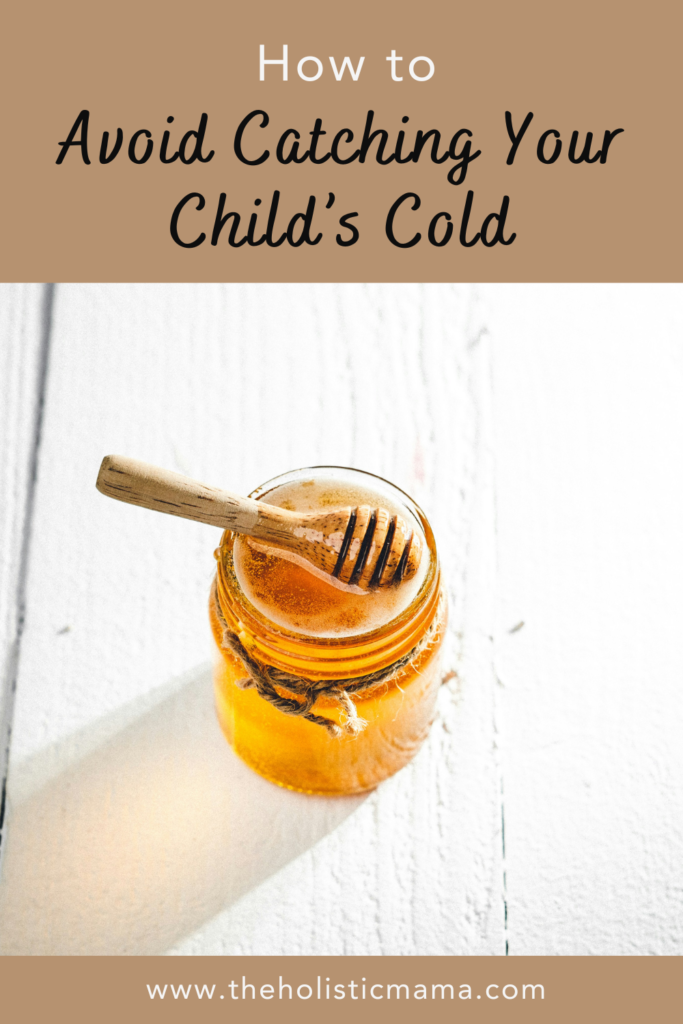
What You Can Do Immediately to Avoid Catching Your Child's Cold
As soon as I see some sniffles or I hear a cough, there are a few things I do immediately.
#1 – Take Life Down a Notch
It’s easy to be busy and do a lot so this can be harder than it sounds. It’s probably the most important thing you can do to avoid getting your kids illnesses and to speed up their recovery. Skip some extra activities, get everyone to bed early (even you!) and take a sick day if you have to.
#2 – Double Up Daily Supplements
Once there is an illness in the house, give everyone Elderberry Syrup 2-3 times per day. You can also double up on Vitamin C and Probiotics and take them both twice a day.
#3 – Oregano Oil
Oregano is a powerful anti everything! It’s best to keep a bottle of oregano oil capsules on hand so you can take them as soon as you notice something going on. It’s also important to take natural remedies regularly. You can take this 1-2 times a day while the children are sick. It is available in a tincture form or an essential oil but the taste can be hard to take. Many prefer the capsules, like these, Gaia Oil of Oregano.
#4 – Propolis
Propolis is really helpful for sore throats and coughs. It works in a few different forms. Keep propolis oil on hand and just put a few drops in the mouth 2-3 times per day or this helpful propolis throat spray. Children and adults love these Manuka Honey & Propolis Lozenges and they are great for moms too. If you feel a slight tickle in your throat these might do the trick.
If you really want to avoid catching your kids illnesses, follow these tips and you will see a big difference!
#5 – Activated Charcoal
Some moms have had luck with taking activated charcoal to absorb toxins from your body. This is especially true if you are dealing with stomach bugs. It's worth trying because it is a healthy practice to do once in a while anyway. Be sure to drink plenty of water to allow it to get through your system.
Thank you for reading this post, don't forget to subscribe to stay in the loop. If you are looking for some of the healthy tools and resources mentioned in my articles, take a look at my healthy shopping guide.
Some of our links are affiliate links, which means if you click and buy, I earn a small commission. The price is the same for you, though. Thank you!
You might also like these posts…
-
How to Get Started Making Herbal Remedies for Beginners
Category: Herbalism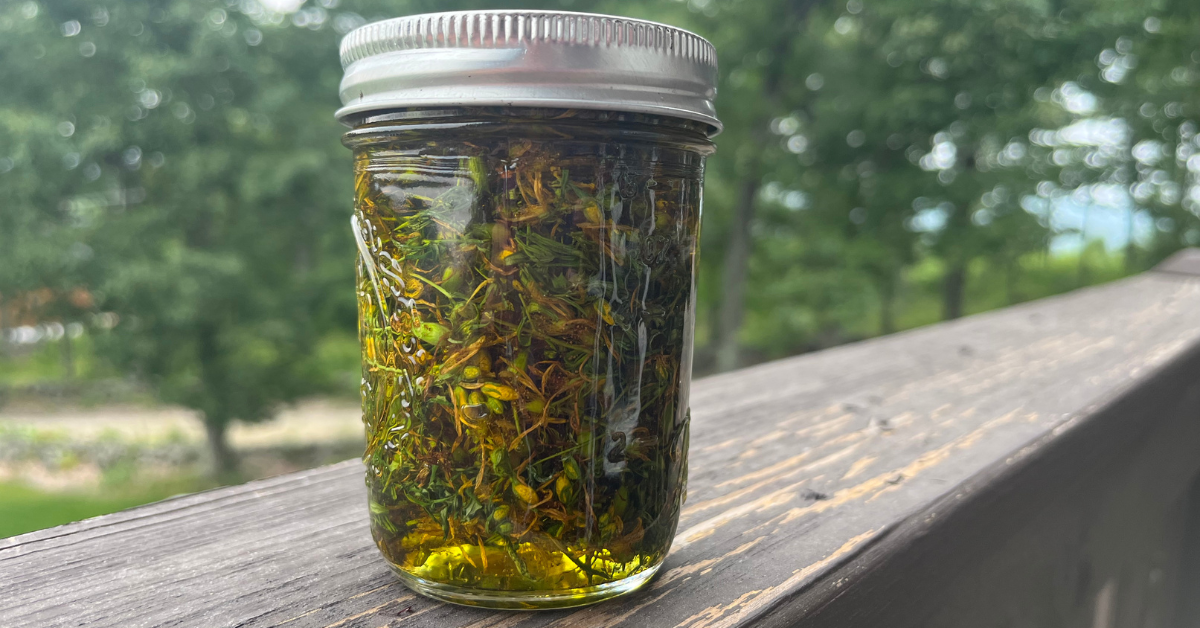
If you are wondering how to get started making herbal remedies, this is for you. I'll go through step by step how you can get started on your own without feeling overwhelmed. There are so many herbs and so many ways to prepare them. When you're first starting out it's best to start with just a handful of herbs and types of preparations.
Choose Safe Herbs to Get Started
When you are new to working with herbs and herbal remedies, it’s a good idea to pick just a few herbs to learn about. There are many safe, simple herbs you can use and learn about without any worry. One way is to choose herbs that grow around you and are plentiful and available for foraging. There are herbs that almost anyone can recognize and forage. Certainly dandelions and maybe plantain or chickweed which are all easily recognizable.
Alternatively, if you are dealing with a specific health concern you may want to read about herbs that help with your health issues and learn about those first. If you are working on gut health, marshmallow root is a wonderful herb to get to know.
Herbal Remedy Books for Beginners
There are a great number of amazing herbal books out there that you can purchase to get started making herbal remedies. This blog post has a listing of many excellent books you can read to start educating yourself. I highly recommend your first book purchase is the The Encyclopedia of Herbal Medicine. This book covers a large number of herbs. It also offers an overview of the most important things you need to know about each herb.
Obtaining Medicinal Herbs
Once you've decided on one to three herbs to start learning about you will need to obtain your herbs. Essentially, there are three ways to gather medicinal herbs. The simplest way to obtain herbs is by foraging. If you are not ready to dive into learning about foraging, you could also start a small herb garden. Growing your own herbs is quite rewarding but takes a little time, patience, and planning. If you really want to start right away you can purchase some dried herbs from a reputable source.
Identifying Herbs & Foraging
If you are interested in foraging for herbs in your local area, learning plant identification is of the utmost importance. When foraging you want to be completely certain the plant is safe and properly identified. There are many foraging books you can purchase that are geared towards your specific geographical area. I highly recommend you get one or two of these books. Start using these books to identify plants in your yard as a practice. You may be able to find a local foraging walk with a herbalist who is well-versed in plant identification. If you are able to find that, you should definitely take advantage of it. There are also some foraging groups on Facebook you can join even browsing those groups. You will learn a lot about plant identification in your area.
Growing Herbs
The next way to obtain high-quality organic herbs is to grow them yourself. First you’ll need to identify which herbs can grow in your climate. The foraging books can also help you to decide what to grow by understanding what plants like to grow locally.
Culinary Herbs
There are many culinary herbs that have medicinal properties and are safe and fun to work with. These are also very easy to find even at a garden center as a starter seedling. I have purchased many herbs this way and they have continued to grow in my garden year after year.
Many plants in the mint family are easy to find at a garden center including mint, spearmint, catnip, or lemon balm. Rosemary is also and easy to find perennial so it will continue to grow each year if tended. Oregano is another culinary herb that you will find as a seedling. You can use your oregano plant to make an oregano tincture or oil of oregano. These are very powerful natural remedies to have in your home apothecary. Any of these culinary herbs are all wonderful herbs to start with and easy to obtain plants.
Purchasing Dried Herbs for Natural Remedies
If you are interested in working with herbs that you can’t forage or grow (or you want them right away), you can purchase them dried. There are a few reputable sources for high-quality herbs. There are three websites that I can confidently recommend to you as sources of high quality medicinal herbs.
- Starwest botanicals
- Frontier co-op
- Mountain Rose Herbs
You may also be able to find some herbs locally if you are lucky enough to have an herb shop nearby. Some health food stores and farms also offer some medicinal herbs for sale. Do some research in your local area and see if there are any shops nearby. A local shop or farm is the ideal place to purchase herbs especially if they use organic growing practices.
Supplies to Get Started Making Herbal Remedies
When you first start working with herbs there are some supplies you may want to have. If you are getting into foraging there are some forging tools you may want to look into getting. Of course all you really need to start foraging right away is a basket and a sharp pair of scissors.
There are many kitchen tools that you may start to need when creating all of your herbal preparations. Here are some of the basic things you'll want to have on hand as you are learning about herbal preparations.
Basic Kitchen Supplies
- a metal fine mesh strainer or cheesecloth
- glass jars for making tinctures
- glass jars for storing your finished herbal remedies
- labels for your jars
- A basic stainless steel pot
- A glass measuring cup
- Stainless steel measuring cups
- a digital scale
Extra Fancy Herbal Supplies
Of course there are many many more supplies that you can purchase. You may want to purchase more down the road but you don't need them right away. I use a much more fancy herb press for straining out my herbal creations. Honestly, a fine mesh strainer will work for very small batches. In the beginning, that is all I used. There are also other tools like an oil infusing machine.
Right now, I recommend you don't go out and buy a ton of stuff until you start learning about the preparations. You will develop your process and how you personally like to make your remedies. Everyone has their own preferences and you will figure out what you need along the way. I wouldn't go out and invest a ton of money until you have started making some herbal preparations. There are an endless amount of beautiful teapots with metal inserts for teas (I have many of them myself). Obviously, they are not necessary to get started making herbal remedies.
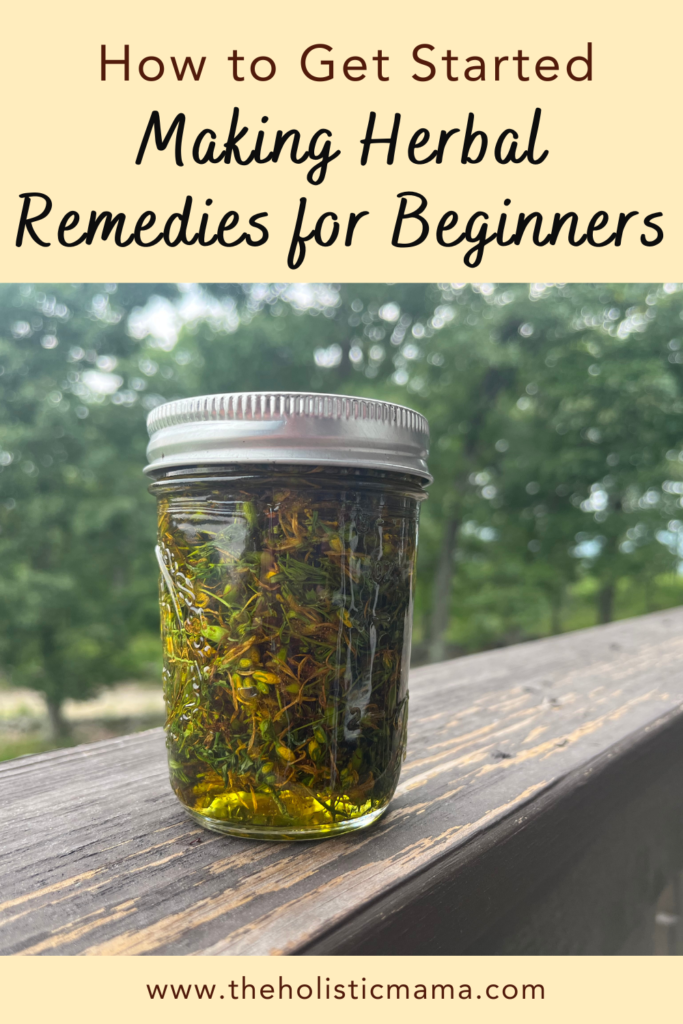
Types of Herbal Remedies
Once you have decided on a few herbs to start learning, you can get started making herbal remedies. The most simple, yet powerful preparation is an herbal tea or infusion. The process is simple and familiar, steeping the herbs in just boiled water. The longer you let your tea steep, the more benefits you will receive. Here are some of the basic beginner preparations you will want to start familiarizing yourself with:
- Herbal tea
- Cold infusion – this is how to make a cold marshmallow infusion
- Herbal Decoction – similar to a tea but longer boiling time for roots, barks, and berries
- Herbal Tincture
- Infused Vinegar – like a tincture but with vinegar, works well to extract vitamins and minerals
- Cold oil infusion
- Hot oil infusion
Lastly, the best way to learn herbal medicine is to start using herbs and making herbal preparations. Reading herbal books and blogs are also incredibly helpful. There are even some videos online you can watch. Most importantly, start with safe simple herbs. I have been working with herbs for many years. I still do not use herbs that have dangerous qualities without the guidance of an experienced herbalist. Or mostly, not at all. There are so many safe and simple herbs to use that I really haven't found much of a need to dive into herbs that may have some dangers. This is where reading herbal books and blogs really come in handy because you learn about herbs that you need to be careful with.
I hope this overview has been helpful. Please feel free to comment if there are things I should add to this step by step guide. Or if you have questions!
Thank you for reading this post, don't forget to subscribe to stay in the loop. If you are looking for some of the healthy tools and resources mentioned in my articles, take a look at my healthy shopping guide.
Some of our links are affiliate links, which means if you click and buy, I earn a small commission. The price is the same for you, though. Thank you!
You might also like these posts…
Holistic Mama Blog
